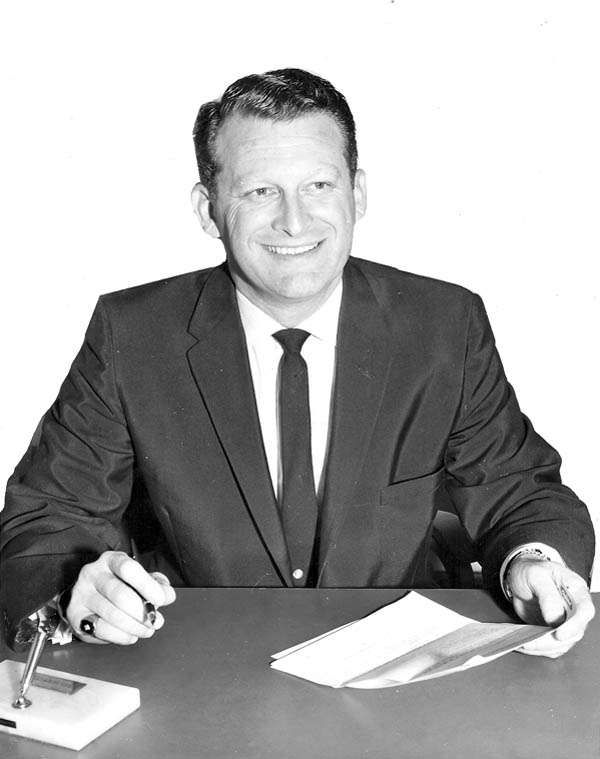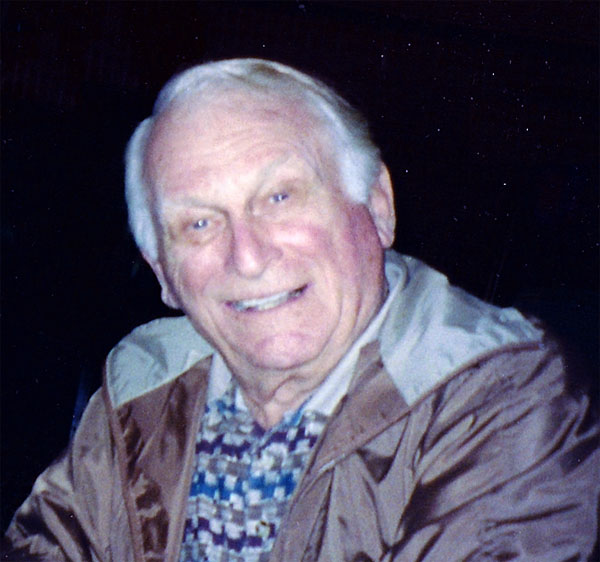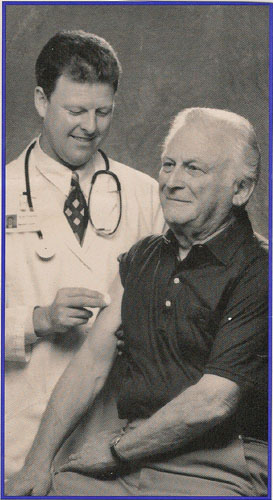Interview with Earl Horwitz: A Good Life
Recorded February 28, 2010
We got in contact with Earl D. Horwitz thanks to our mutual friend Mark Heimback-Nielsen. Mr. Horwitz worked at Capitol Records from the 1950s to 1970s, overlapping the time when my parents worked there in the 1950s. After several telephone conversations between Don Hassler (my stepfather) and Mr. Horwitz, my dad encouraged me to call Mr. Horwitz for an interview. He is eighty-nine years old, and a working musician in Los Angeles. Following is the transcript of our conversation, which covers his years with Capitol, 1959-1977.
Nori: Thank you for calling me back.
Earl: I just got home, I'm busy. I still play the piano. I'm a musician, in fact I played today. I play at retirement homes. A little jazz, they like that; the old songs. So you're working on this Capitol thing.
Nori: I'm studying the history of Capitol Records.
Earl: It's a funny thing, I made a list of some of the people I remember at Capitol Records. Unfortunately, I had a sad thing happen the other day. A fellow who was a very, very close friend of mine who used to be with Capitol passed away. His name was Maury Lathower. He worked for me when I was the head of the branch in Chicago. He eventually went to Columbia Records. I remember so many people. Where do you want me to start out?
Nori: Let's start out with yourself, a little about your background like where you grew up and how you got into working for Capitol.
Earl: I was born in 1921 and lived most of my life in San Francisco. When I was in San Francisco I had a record store in a town called Redwood City. I sold it and then the fellow who was the head of the Capitol branch at the time, Voyle Gillmore, who later became an A&R man at Capitol, hired me as a salesman for Capitol Records. I worked for Capitol as a salesman for five years, then I was promoted to take over the Seattle branch of Capitol Records. I was there for two and a half years, and I was then promoted to Chicago where I was the branch manager of Chicago for another few years. Then they promoted me back out the West Coast as a regional sales manager for all the West. I was with Capitol for a period of about eighteen years. That was my time with Capitol. I knew so many people there and had so many experiences, with artists and everything. It was a wonderful time for me, believe me. I worked with a lot of artists, like we all did. I knew Stan Kenton and did some work for him. I knew everybody.
Nori: Earlier this month when you talked with my stepdad Don Hassler, you told him the story about the one-stops. Would you please tell me that story?
Earl: At that time, most of the juke box operators were under one of the top Mafia men in Chicago named Charles "Chuck" English. They bought a lot of records from us, but the unfortunate thing was that whatever they bought was on a hundred percent exchange. Whatever they didn't sell to the juke box operators, they brought back to me. Got to a point where they bringing back more than they were buying. I knew they had a place in Arizona somewhere, so I called a fellow up and I said, "Hey, you're giving me a problem. I'm losing money on you. If you don't stop bringing back so many records, I'm going to have to cut you off." Well, the lawyers at Capitol Records warned me that this was Chuck English's main business. So they said watch out, but I did do that. Everybody was, "What are you doing, Earl? What do you do with this thing?" so one day I got a phone call. It was Mr. Charles English on the phone, and he was very, very nice. He said, "I'd like to see you Mr. Horwitz, about my situation not being able to get my records from Capitol." So he came in, drove up in a big Cadillac to my office, and had a fellow with him, they had black hats on, and he sat down and was very nice. He said, "I'd like you to sell us records again." Of course, I was told "don't play around with this man" because he was tough. It so happened I said, "Of course, Mr. English if you'll at least try and help me, don't buy so many records" [so not as many will need to be returned]. He said, "I'll take care of that." And I said, "The other thing Mr. English, is you do owe quite a bit of money that you haven't paid Capitol." So he said, "How much do I owe you?" I said, "Around seven or ten thousand dollars." He pulled the cash out of his pocket and laid that money on my counter. I wasn't very smart in doing business with him, but at least I got out of it gently without having to be threatened. It wound up okay, but it was a laugh with the Capitol people. They got a big kick out of it.
Nori: So what was a "one-stop"?
Earl: The Mafia owned what they called juke box one-stops and those were the people who sold to the juke box operators. They were putting records in juke boxes all over the place. They bought records from us. We were hot then. We had Nat Cole, others. We sold them records, but that's what happened, they were over doing it and causing my branch to lose money. Anyway, it would up okay. He brought a big beautiful bit of flowers to me when he came into the branch. It was really funny because he was a tough man. It was one of those things with Capitol and I loved working for the label. It was a lot of fun.
Nori: You went from San Francisco, to Seattle, to Chicago, and then back to L.A. When you came to L.A. was the tower built yet?
Earl: Yes it was. I was at the tower when they opened up. I went there with my wife and my boy, and at that time they had an opening session at the recording rooms under the tower. The comedian Stan Freberg was emceeing. He got up and he was very funny. He said, "I want you to know that the big window blinds that circle the tower, he said those are really threads. In the basement is the famous guitarist Les Paul. Every time we tell Les to play, if he doesn't play right, I press a button and the Tower screws itself into the ground." That was Stan Freberg.
Nori: How did the company change after EMI bought Capitol in 1955?
Earl: They put some restrictions into it. In those days, you used to swing with records. If you wanted to get a window in some very big store, you gave the owner some freebies, free records. EMI put a stop to all the fanageling in the record business at the time. If you wanted to get a record in the juke box, you had to do something about it, under the counter. A lot of fellows left Capitol, they retired, but EMI kept some of the local men as head of it, like Max Calasand, Bill Talent the vice-president of Capitol; Alan Livingston, he was the president when I was there. Alan Livingston was married to an actress named Nancy Olson. Alan was a wonderful man. He passed away about a year ago. Everybody was very close at Capitol. It was like a big family. When EMI took over, some of the people in the family were out, and that was all there was to it. That's what happened, but it was still a wonderful company. I loved working for them.
Nori: The fiftieth anniversary of the tower was in April 2006. Do you remember it?
Earl: Mark Nielsen sent me the fiftieth anniversary book. I left Capitol in 1977, something like that. Then I got the fiftieth anniversary book later, which was wonderful. Capitol started in 1942, Buddy deSylva and Johnny Mercer. That was my tenure for Capitol.
Nori: I have posted quite a bit of Capitol history on my website and have heard from many people connected with the company, including children of the original people. The funniest letter I have received was from a man who said he heard that Dick Rising was a fictional character, and he asked me how much of this was true. We got a real laugh out of that.
Earl: There's some names here. Did you know Jay Swint? He was a promotions man initially in Seattle, and he came down to the tower, working in the promotion department. People like Bud Levinson, Max Callison. Max Callison was one of the national sales managers at the time. Don Zimmerman - he was the president of Capitol in the eighties. I saw him when we had a Capitol reunion here at Universal Studios. I saw him there. He was a salesman when I was a regional manger, and he actually worked for me one time. I have so many names here. Tito Sevella, the New York manager.
Nori: Do you remember my parents? My dad and my stepdad worked for Capitol. My stepfather was in sales and also A&R. My father did the Wrap-up. They were there in the 1950s. My father was fired because he got in the middle of a problem. Playboy wanted the Capitol artists for their all stars LP, but Glenn Wallichs didn't want that. My dad got in the middle of it and he got fired.
Earl: I ran into politics too. The head of Capitol Records, Glenn Wallichs, knew that I had had a record store. We were down in a meeting in Palm Springs, and he came up to me and he said, "Earl, I'd like you to think about the possibility of Capitol Records opening up a chain of record stores across the country." He said, "I would like you, if you would like to, to come to the tower and work on that. See if we can do it." I was regional manger at the time, but he said, "I'm going to replace you, but I want you to come to the tower." I went to the tower and started to research the possibility of opening up a large chain of record stores across the country. Unfortunately, Wallichs had a brother named Clyde who owned the biggest record store in Los Angeles, on Sunset and Vine, Music City. When Clyde Wallichs heard that he had hired me with the possibility of opening up record stores all over the country, he said "you can't do that - you're making things tough for me." That was the end of my time with Capitol Records.
Nori: Too bad he wouldn't collaborate with you.
Earl: Yeah, he wouldn't do that, so I got a call from Glenn Wallichs, who said, "Earl, I'm sorry but we replaced you as a regional manger," and that was the end of it. I got a nice bonus going out of it, but I came home that day and I was sick. After eighteen years at Capitol Records I lost out. I worked for other labels. I had my own label for a while. I worked for Stan Kenton. It was a good life and I don't regret any of it. It was fun for me. As I said, I'm retired now, but still in the music business.
Nori: After Capitol, where else did you work?
Earl: Have you ever heard of Muntz?
Nori: Yeah! Mad Man Muntz?
Earl: Mad Man Muntz hired me. I had to drive one of those big Linc's around with his name on it. I worked for him for a while but it wasn't successful. He was into four track at the time. We didn't get along. He was a tough man to work for, he had such an ego you couldn't stand it. I left Muntz and got a very nice job. A friend of mine, Lee Mandell, was the vice president of Liberty United Artist records. He wanted somebody to come in and help take over the tape division. I worked for them for about three or four years. I eventually wound up with BASF, a German company. They had a record business in the country under the BASF name. I worked for them for a while as a regional manager, but it didn't last too long because they gave up on making records. From then on, I tried to get into the record business myself. I did independent marketing for a variety of labels who wanted somebody to promote their records. That's how it went until I retired at sixty-five. Since then I've had a wonderful time enjoying myself, playing for people in the Alzheimers homes and retirement homes, playing the piano.
Nori: Would you tell me a little about your family?
Earl: Gene, my wife of thirty-seven years, passed away. Fortunately, my current wife Sheila was her speech pathologist. She had helped my wife until she passed away. Two years after that, Sheila and I got married. We've been married for seventeen years. I have quite a big, mixed family. Myself, I have three children, two daughters and a son. I have five, well mixed through our marriages, I have about seven or eight grandchildren, and three great-grand children. We have a very nice family. My grandkids are going to college and graduating. It's been a good life. I'm very happy now because my wife Sheila is also an actress and works in a lot of local plays here. We do very well together and it's been very good, I can't complain. I myself not in bad shape. I get along and walk, play, and have a good time.
Nori: I lived in L.A. at different times.
Earl: Have you been to the tower?
Nori: I went there a few years ago, but there was nobody in the lobby to talk to, so I just looked around.
Earl: I tried to go through about two or three years ago, but they finally decided there were no more tours of the tower. It's still there, it looks good! I had so many wonderful things happen when I was at Capitol, so it brings back some memories for me.
*Here is a list of the people Earl Horwitz remembers from his eighteen years at Capitol Records (1959-1977):
Bill Mikels - VP
Max Callison - National Sales
Bud Levinson - Accounting
Guy Haines - Promotion
Bob Camp - Regional Sales
Lloyd Dunn - VP Sales [later President, his autobiography, "On the Flip Side," was published in 1975.]
Alan Livingston - President
Jay Swint - Sales and Promotion
Don Zimmerman - VP Sales [later President]
Charley Bratnober - Sales
Joe Cerami - Regional Sales, Midwest
John Jossey - Regional Sales
George Gerkin - Merchandising at the Tower
Vito Samela - New York Sales Manager
Wade Pepper - Regional Sales, Southern Area
Bill Tallent - VP Sales
Earl Horwitz Then and Now


Still looking good at eighty-nine years young.

Earl in an HMO advertisement.